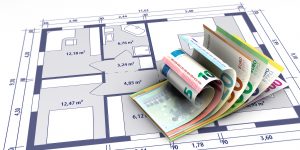 As much as HGTV would like us to believe, a home renovation project doesn’t just end with the before-and-after reveal. If you’re about to embark on an extensive remodeling project, be prepared for your property taxes to increase.
As much as HGTV would like us to believe, a home renovation project doesn’t just end with the before-and-after reveal. If you’re about to embark on an extensive remodeling project, be prepared for your property taxes to increase.
Here’s what you need to know:
What kind of renovations trigger a property value reassessment?
Under California property tax law, construction that does the following will increase your property value:
1. Adds square footage to an existing building
2. Adds additional buildings or improvements to a property, such as by constructing a new garage, adding a bathroom, or installing a swimming pool
3. Improves a property to “like new” quality
4. Changes a room or property’s usage (e.g., converts an attic into a bedroom or turns a closet into a bathroom)
5. Build a new property on a vacant lot
Regular maintenance and repair of your property that does not add any new functions to your home, such as repainting your walls or replacing worn-out carpet, will not trigger a reassessment.
But if you’ve purchased a property in bad condition that requires extensive renovations — such as needing a new roof, foundation, HVAC systems, and/or exterior walls — the home value will likely be reassessed if the final, renovated property is equivalent to the quality that a new property would be in.
As a general rule, it’s best to contact your county assessor before moving forward with a renovation or remodeling project to determine whether your design plans will trigger a reassessment.
How are the renovations reassessed?
If your renovation project falls under the aforementioned categories, your home will be reassessed based on the value of the improvement, or “new construction,” added to your property.
For example, if you renovated your 1,000 square-foot home and the finished product is 2,000 square feet, the market value of the additional 1,000 square feet will be added to your home’s assessed value. The original tax base for the land and the previously existing 1,000 sq. ft. of the home will remain the same.
The assessed value will be determined on the date the renovation or construction is completed. After the construction is completed, the base year assessed value will be determined and a supplemental assessment will be issued that factors in the difference between the estimated value previously noted on the public record and the actual value of the new construction.
In California, property tax rates are limited to 1% of the home’s assessed value plus voter-approved taxes for schools and other local projects.
In Santa Clara County, the assessor’s office will mail all homeowners with a postcard that indicates the assessed value of their property at the end of June. Any homeowner who wants to contest their property’s assessed value may present information and documentation that would speak to the property’s true value to the assessor’s office by August 1 of the current assessment year. Taxpayers are then advised to file an assessment appeal to the Clerk of the Board after August 15 to request a reduction; the issue will then be presented at a hearing before the local Assessment Appeals Board or a value hearing officer. If the board or officer renders a decision that results in a lower property value than determined by the county assessor, the reduction in property taxes will only apply to the year the appeal application was filed.
What if I’m demolishing and rebuilding my entire home?
Prepare to have your entire property reassessed. While the land will maintain its existing value, the demolished and rebuilt property will be reassessed based on market value. The county assessor will, however, take into account construction costs, which can include labor and materials, contractor overhead and profit, permit fees, and insurance, when determining the value of your property.
You can get a general sense of what the market value of your newly built property is by calculating the difference between how much your property, prior to being demolished and rebuilt, would have sold for and how much your newly rebuilt property would sell for on the open market.
Keep in mind that for an entirely new construction, the property’s new base value will be determined on the date that the construction is completed.
Are there any exceptions?
Yes. If you will be living in the property you are rebuilding as your primary residence, you may be eligible for an exemption of up to $7,000 off the assessed value of the home, resulting in lower property taxes.
If you are renovating your home after sustaining major damage from a natural disaster, you will not have to undergo a reassessment if the renovations or reconstruction happen in a timely manner and if your property is substantially the same as what it was prior to the damage.
You are also exempt from property reassessments if you are adding solar panels or earthquake retrofitting to your existing property.

